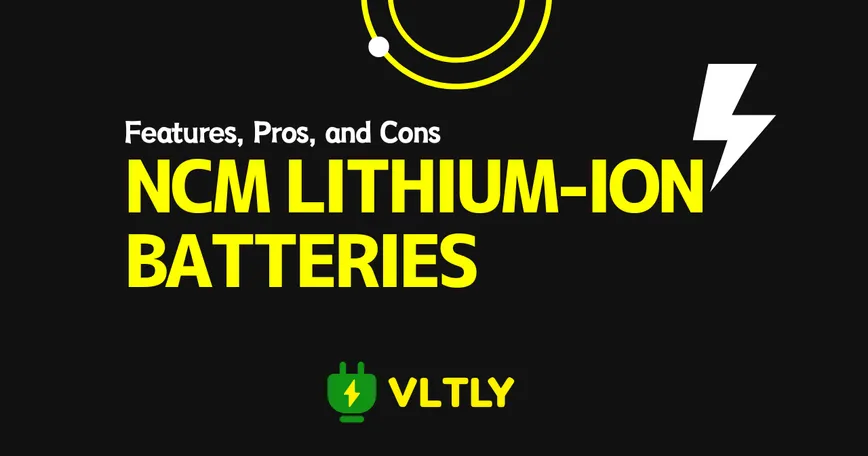
Features, Pros, and Cons of NCM Lithium-Ion Batteries
This article explains the features, pros, and cons of NCM lithium-ion batteries, widely used in the previous generation of portable power supplies.
Posted at: 2024.7.22
What is a NCM Lithium-ion Battery?
NCM lithium-ion batteries, the next generation after cobalt-based lithium-ion batteries, are characterized by their use of a mixed compound of nickel, manganese, and cobalt (NMC) as the cathode material.
Compared to cobalt-based lithium-ion batteries, NCM batteries are designed to reduce costs and the risk of thermal runaway. They are widely used in electric vehicles and hybrid cars, among other applications.
Advantages of NCM Lithium-ion Batteries
High Energy Density
NCM lithium-ion batteries offer a balance of high energy density and safety, allowing for compact size and high output compared to cobalt-based lithium-ion batteries.
Lower Manufacturing Costs
NCM lithium-ion batteries reduce the amount of cobalt used, incorporating nickel and manganese to lower overall costs. This makes it possible to produce large-capacity batteries at a lower price.
Disadvantages of NCM Lithium-ion Batteries
Short Battery Cycle Life
Compared to the currently mainstream lithium iron phosphate (LiFePO4) batteries in portable power supplies, NCM lithium-ion batteries generally maintain 80% of their designed capacity for only around 800 cycles, which is less than half the cycle life of LiFePO4 batteries.
Thus, for applications requiring frequent charge and discharge cycles, NCM batteries degrade more quickly and may not last for 5 to 10 years.
Difficult Thermal Management
NCM lithium-ion batteries are sensitive to high temperatures and physical shocks, with a risk of fire if overheated. There have been cases of portable power supplies catching fire during charging at home, which can result in house fires. Given these risks, lithium iron phosphate batteries are often considered the only safe option for future portable power supply purchases.